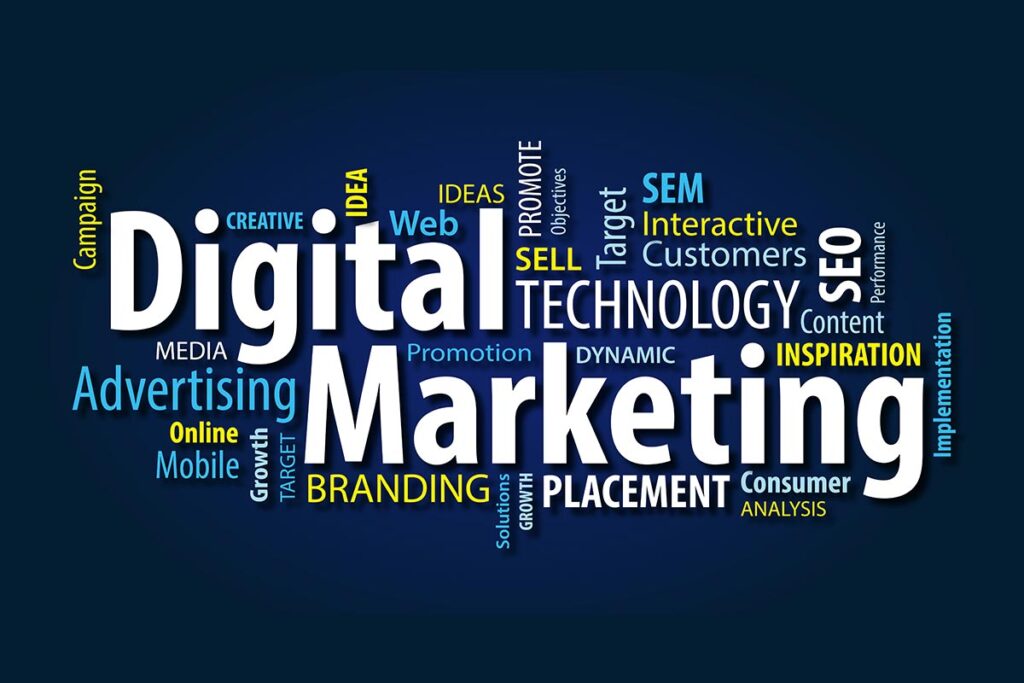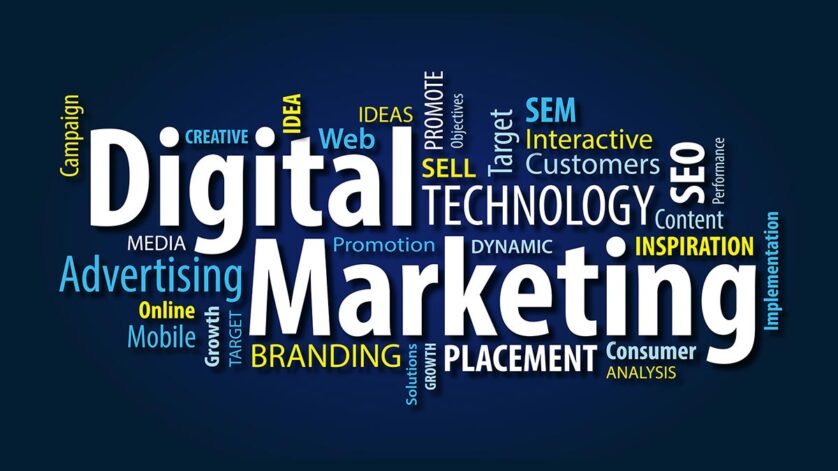
Digital marketing uses websites, apps, mobile devices, social media, search engines, and other digital means to promote and sell products and services. It combines principles from traditional marketing with new strategies tailored for the digital landscape, adapting to the increasing adoption of the internet since the 1990s.
Types of Digital Marketing Channels
- Website Marketing: Your website is the hub of your digital marketing activities. It should be fast, mobile-friendly, and easy to navigate, clearly representing your brand and offerings.
- Pay-Per-Click (PPC) Advertising: PPC ads appear on search engines and other platforms, targeting users based on their demographics, interests, and location. Popular PPC platforms include Google Ads and Facebook Ads.
- Content Marketing: This involves creating and sharing valuable content to attract and engage your target audience. It includes blog posts, videos, and infographics, often promoted through social media and email marketing.
- Email Marketing: Despite its association with spam, email marketing remains effective. By building an email list, you can send targeted messages to convert leads into customers.
- Social Media Marketing: Social media platforms like Facebook, Instagram, and Twitter are used to build brand awareness and trust. Advanced strategies include using promoted posts and engaging directly with followers.
- Affiliate Marketing: In this model, influencers and other partners promote your products for a commission. Programs like Amazon’s affiliate program exemplify this approach.
- Video Marketing: Platforms like YouTube and TikTok are popular for video marketing. Videos can educate, entertain, and influence buying decisions, often integrated with SEO and content marketing strategies.
- Text Messaging (SMS): SMS marketing involves sending promotional messages directly to consumers’ phones, useful for time-sensitive offers and updates.
Key Performance Indicators (KPIs)
Digital marketers track various KPIs to measure campaign success, such as:
- Click-Through Rate (CTR): Measures the percentage of people who clicked on an ad out of the total who saw it.
- Conversion Rate: The percentage of users who completed a desired action, like making a purchase.
- Social Media Traffic: Tracks engagement metrics like likes, shares, and follows on social media platforms.
- Website Traffic: Monitors the number of visitors to your website, helping assess the effectiveness of marketing efforts.
Challenges in Digital Marketing
Digital marketers face unique challenges, including keeping up with rapidly evolving digital channels and analyzing vast amounts of data. Moreover, the digital space is crowded, making it difficult to capture consumer attention amidst the noise of countless ads and distractions.
The Role of Digital Marketing Agencies
Digital marketing agencies specialize in creating and managing campaigns across various digital channels for businesses. They utilize tools like social media, PPC advertising, and SEO to help clients reach their marketing goals.
Essential Skills for Digital Marketers
To succeed in digital marketing, strong communication skills, data analytics proficiency, and social media expertise are crucial. Understanding consumer behavior and effectively conveying a brand’s story are key components of a successful digital marketing strategy.
Conclusion
Digital marketing has become essential as consumers increasingly use digital platforms. Combining traditional marketing principles with new digital tools, marketers must navigate challenges and continually adapt to new trends to succeed in this dynamic field.

